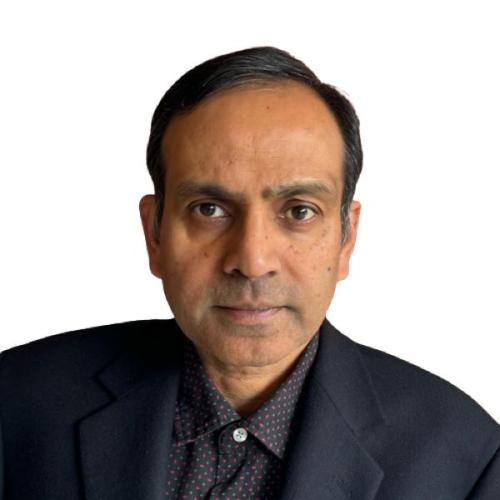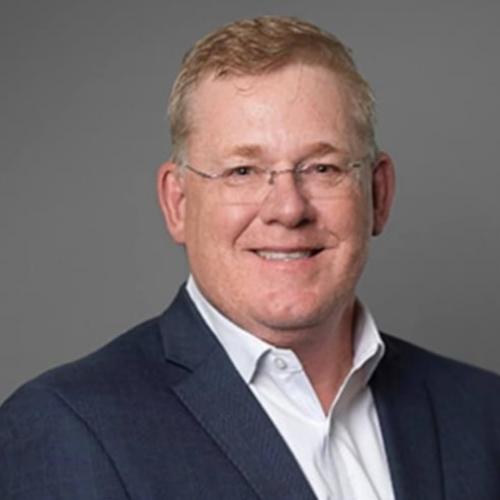
Badarinath Kommandur
Badari has played a pivotal role in shaping the landscape of Advanced CPU design, Low Power Graphics, and Client SoC designs at Intel Corporation, contributing to over 10 generations of cutting-edge technology. His most recent role as a Senior Principal Engineer on the Meteor Lake Client SoC design team underscores his commitment to pushing the boundaries of design methodology, efficiency, and PPA optimization.
He has also completed the System Design & Management Fellows program at the Massachusetts Institute of Technology. A proud graduate of Arizona State University with a Master's degree in Electrical Engineering, Badari's focus was on VLSI design and Computer Architecture. Beyond his technical focus, Badari has made significant impacts in Intel Capital and Intel Labs, spearheading efforts in New Business Incubation and contributing to long-range research definition and commercialization.
Badari is currently a Fellow in Cadence Design Systems and leads the Physical Design CAD and TFM teams developing best in class IP's and Chiplets in the Silicon Solutions Group. He leads teams exploring the application of Gen AI and Agentic AI capabilities for improving design efficiency and PPA for Cadence IP's and Chiplets in SSG.

Candise Goodwin
Candise Goodwin is a recognized leader in the pet industry, with over 15 years of experience helping companies navigate market complexity, scale solutions, and deliver measurable impact. Her background spans pivotal roles at industry leaders including Merck Animal Health, Vets First Choice, VIP Petcare/PETIQ, and Petco, where she led major digital transformations and launched numerous high-profile, industry-changing growth initiatives.
Candise has dedicated her career to understanding the challenges and opportunities within the pet industry. She has worked closely with retailers, veterinary groups, pet technology companies, product and service providers, and pharmacies - developing a holistic, customer-centric viewpoint of the industry's unique ecosystem along the way.
Today, Candise extends her expertise to clients seeking to navigate the complexities of the market. Her firm, Outlier Advisors, provides strategic consulting services that reflect her distinctive blend of innovative thinking, deep industry knowledge, and ability to spot emerging trends. Outlier Advisors partners with industry leaders, investors, and startups to develop actionable strategies that meet the demands of an evolving pet landscape.
Candise is also a sought-after speaker, advisor, author, and mentor, known for sharing rare and multifaceted insights and practical strategies with fellow Outliers.
3.45-4.00 – Meeting 15
4.05-4.20 – Meeting 16
Unleash your profit potential and dominate online sales with savvy digital marketing moves & retention focused planning. From pinpoint targeting to data-driven magic, learn how to captivate pet parents, boost engagement, and turn clicks into loyal customers in a bustling e-commerce pack.

Ryan Reed
Ryan has been an entrepreneur since 2008, right out of college. He started a successful Digital Marketing agency where he worked with many large ecommerce companies and helped some to exit. Ryan also started a lifestyle brand with his wife in 2017, Lifebyher LLC, which provides lifestyle content for women. He and his wife Ashley have built the following to 700,000 followers and growing. In 2020, Ryan partnered with his friend and former client, Gary Nealon, to start Pawzitivity Pets where they have acquired 8 brands in the pet space, ranging from supplements to content websites.

Charles Rosenblatt
A seasoned innovator in the payments industry, Charles Rosenblatt has held executive leadership positions at major global banks, including Capital One and Chase, as well as prominent fintech organizations. He served on the management teams that led to the sale of Hyperwallet to PayPal and Payoneer going public, and is now Chief Commercial Officer at Butter—the payments technology leader in revenue retention for subscription businesses. Charles is a graduate with a B.A. in Economics and Politics from Pomona College and received an M.B.A. from the University of Virginia.
Getting into retail is a milestone—but one with serious cost, complexity, and risk. This breakout dives into what early-stage pet brands must know before pursuing retail: from pitching buyers and funding shelf strategy to navigating distributor relationships and demand planning. Understand what retailers look for, how to build leverage, and whether the shelf is really your next best move.

Joe Watson

Jerrica Fletcher

Julie Nelson


